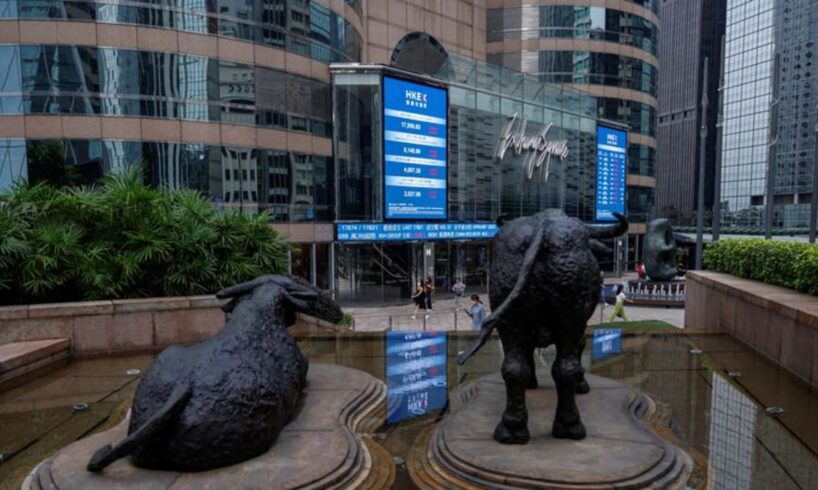
SYDNEY :Asian shares and the yen held their ground on Monday as Japanese elections proved bad for the government but no worse than already priced in, while Wall Street futures braced for earnings from the first of the tech giants.
Investors were also hoping for some progress in trade talks ahead of President Donald Trump’s August 1 tariff deadline, with U.S. Commerce Secretary Howard Lutnick still confident a deal could be reached with the European Union.
There were reports Trump and Chinese leader Xi Jinping were closer to arranging a meeting, though likely not until October at the earliest.
In Japan, the ruling coalition lost control of the upper house in an election on Sunday, further weakening Prime Minister Shigeru Ishiba’s grip on power as a tariff deadline looms.
Ishiba expressed his intention to stay in the position, which along with a market holiday, limited the reaction and the yen was 0.4 per cent firmer at 148.29 to the dollar.
“Ishiba will try to govern with support from some within the opposition, but this likely means a looser fiscal policy and is not good news for bond yields,” said Rodrigo Catril, a senior FX strategist at NAB.
“History also suggests that domestic political uncertainty tends to keep the BOJ on the side-lines, so the prospect of rate hikes is now set to be delayed for a little bit longer.”
The Bank of Japan still has a bias to raise rates further but markets are pricing little chance of a move until the end of October.
While the Nikkei was shut, futures traded up at 39,875 and just above the cash close of 39,819.
MSCI’s broadest index of Asia-Pacific shares outside Japan was flat, while South Korean stocks added 0.4 per cent.
MEGA CAPS KICK OFF
S&P 500 futures and Nasdaq futures both edged up 0.1 per cent, and are already at record highs in anticipation of more solid earnings reports.
A host of companies reporting this week include Alphabet and Tesla, along with IBM.
Investors also expect upbeat news for defence groups RTX, Lockheed Martin and General Dynamics. Ramped up government spending across the globe has seen the S&P 500 aerospace and defence sector rise 30 per cent this year.
In bond markets, U.S. Treasury futures held steady having dipped late last week after Federal Reserve Governor Christopher Waller repeated his call for a rate cut this month.
Most of his colleagues, including Chair Jerome Powell, have argued a pause is warranted to judge the true inflationary impact of tariffs and markets imply almost no chance of a move in July. A September cut is put at 61 per cent, rising to 80 per cent for October.
Powell’s reticence on rates has drawn the ire of Trump who threatened to fire the Fed chief, before backing down. The spectre of a potential political appointee who would seek to ease policy sharply has investors on edge.
The European Central Bank meets this week and is expected to hold its rates steady at 2.0 per cent following a string of cuts.
“The press conference will likely keep highlighting uncertainty and need to wait for tariff negotiations to conclude before deciding the next step,” said analysts at TD Securities in a note. “Similarly, its ‘meeting-by-meeting’ language would be retained in the release.”
The euro was unchanged at $1.1630 in early trading, having dipped 0.5 per cent last week and away from its recent near-four-year top of $1.1830. The dollar index was a fraction lower at 98.40.
In commodity markets, gold was little changed at $3,348 an ounce with all the recent action in platinum which last week hit its highest since August 2014.
Oil prices were caught between the prospect of increased supply from OPEC+ and the risk European Union sanctions against Russia for its war in Ukraine could curb its exports.
Brent edged up 0.1 per cent to $69.36 a barrel, while U.S. crude added 0.1 per cent to $67.39 per barrel.
(Editing by Sam Holmes)





